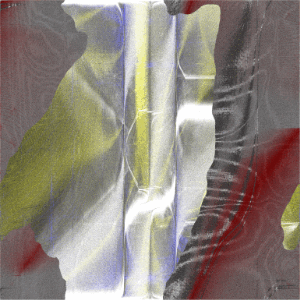Through sheer bloody determination to push through, Björk has, possibly, maybe, crafted her finest hour as a composer & producer, and the most vital album of her career—managing to take both the destructive and healing powers of time and turn them in something utterly timeless, as only she can.
A lot can happen in 20 years. But let us go back to 1995 a moment when the-then 29 year old, Icelandic mother of one, Björk, released her second international solo album Post. Not just because its imminent anniversary is just around the corner, and its vibrant, metropolitan fusion of trip-hop, industrial, ambient, big-band, classical and avant-pop still sounds like nothing else since. But specifically because of “Possibly Maybe;” her first self-described “sad song.”
Aside from being one of Trip-hop’s finest commercial cross-overs, its sluggish clockwork pulse, clever IDM samples and nifty hula slide-guitar set the scene for Björk’s seven verses to chronologically detail each of the seven months she spent dating esteemed photographer and video director, Stephan Sednaoui. From exciting initial flirtation, erotically charged middle, to heart-breaking end.
Although Björk was (involuntarily) playing the role of tabloid popstar at the time, she was never one for revealing such intimate details about her love life. But always insisted that if she ever had something to say she would say so in her songs. We would have to wait two whole albums though until such subjects were dared uttered again, when upon falling madly in love with contemporary visual artist Matthew Barney, she channeled her frank (and even surprisingly graphic) sexual, emotional and domestic bliss right into the core of her fourth album, Vespertine (2001). A firm rival favorite with fans to this day, many followers have still yet to bring themselves to invest beyond being either #teamVespertine or #teamHomogenic (1997’s highly-charged predecessor, which saw her strip the fat of her celebrity life, and reboot her Icelandic roots through the sole use of sharp, raw beats and an Icelandic string octet.)
With the main corners of her personality provisionally covered from 1993’s Debut, up to Vespertine, Björk then allowed herself to truly fall down the rabbit hole of conceptual explorations and multimedia experimentation. While an entirely a capella anti-sing-along (Medúlla, 2004), anthropological ode to contemporary world music (Volta, 2007), and gargantuan sized, academic multi-platform study into the correlation between nature, science and musicology (Biophilia, 2011), excited, baffled and enthralled many, there were still others pining for something a little more first-person based. Or at worse, complaining her perspective on a good tangible “pop” melody doesn’t always have to be sacrificed in favor of a weighty concept.
And so to 2015, where the now 49 year old single mother of two has (for the moment) gotten all the conceptual ideas out of her system, and is taking a long, hard look at the person left over from what sounds like a rather traumatic breakdown of her relationship with Barney. This has wholeheartedly been channeled, hurtled and sprawled right into the very meat, blood and bones of Vulnicura—an album so visceral, it makes the sexytime parts of Vespertine sound like the 10 o’clock news.
The sheer soul baring in every corner of this nine track collection is the first thing that hits you, and in an almost belated extension of Possibly Maybe some 20 years ago, Björk has chosen literal chronology as her ally in wading through the storm: The first six songs are each uncomfortably subtitled with 9 months before, 5 months before, 3 months before, 2 months after, 6 months after and 11 months after.
Perhaps a conscious self-imposed challenge in order to see through producing an album of such gall, for the first time Björk has not recruited the services of long-time friend and Icelandic literary darling Sjón to swoop in and harness her words into smoother lyrical poetry. Instead opting for unfiltered streams of consciousness via her trademark, romanticized, broken English, guided only by the structure of the compositions themselves to form the narrative throughout the entire collection. On paper, such lyrics should induce cringes for even the most heartbroken of angst-ridden teenagers. But it is the compositions themselves that hold it all together, and where Björk lets her true emotions out.
Finding middle ground between the bold, narrative string octets of Homogenic and the distant panoramic whispers of Vespertine‘s full orchestra, Vulnicura‘s 15 piece strings fills in any blanks that the lyrics just can’t find the words for. We are genuinely looking at her finest hour as a composer on this album, and it is a thrilling listen when the strings flutter, pulse and soar throughout every track, ticking every virtuoso trick in the book along the way. Meanwhile, aside from a few key points of near emotional combustion, Björk’s ever present voice is unusually restrained and steady paced throughout, as though it is the only way she can keep herself together to get through the entire collection.
The overall affect is similar to that of sitting through a thoroughly sad, tear jerking movie with a grandiose soundtrack, while the woman next to you blubs loudly and sobs through her tissues because the story touched a nerve. Ordinarily you would throw a stern “Excuse me… Do you mind?!” However, what if this woman was your mother, your sister, or a friend you had never seen cry before? Your fascination alone would allow them to indulge in this cathartic moment of self-pity. All friends should allow each other a good old cry at times after all, even if it is in a packed theater. Right?
To play devil’s advocate, let’s just say “him” from here on for he who Björk has in her emotional crosshairs.
“Stonemilker” (9 months before) finds her struggling to extract emotions out of him. While opening the album on an instantly heart-breaking note, the strings soak you in and lull you to believe there is still beauty and hope here as Björk steadily laments “I wish to synchronise our feelings.” However, “LionSong” (5 months before) relives the steady breakdown of communication and the stubborn male bravado not helping the situation (“this wild lion doesn’t fit in this chair / maybe he will come out of this loving me / maybe he won’t / I’m not taming no animal”) as the strings and pulsating glitch and beats crank up the tension for an early, unforgettable highlight.
Homogenic‘s blood might well be running through the mood of this, but logistically the team behind Vulnicura is also made of a similarly small line-up of producers and musicians. Venezuelan producer of the moment, Arca, becomes the 2015 equivalent of what LFO’s Mark Bell (RIP) was to Homogenic; Holding Björk’s hand every single step of the way with a carpet of stellar production and beats for her to roll around on. With the assistance and eerie atmosphere of The Haxon Cloak behind the album’s final mix, and a bit of additional IDM pebble-dashing on final track “Quicksand” from Bleep signee Spaces, that’s pretty much it for the crew manifest bar the Icelandic U-Strings orchestra.
Arca’s twisted singular chimes back the minimal “History Of Touches” (3 months before) for a moment of reflective respite. Björk wakes herself up in the middle of the night to acknowledge the last time she and him will be together, before we skip straight to 2 months after with the epic 10 minute centerpiece, “Black Lake.” Here, at the depths of despair, self-pity and loss, Björk brings the strings along for every moment of her sombre, mournful journey and builds and the song to the album’s first real climax of beats, production, blood, sweat and so many tears around the 6 minute mark, before drawing to an exhausting finale.
6 months after, “Family” finally sees her licking her wounds and turning her attention to the matter of the “miraculous triangle” that was her, him and their daughter. Melodrama takes full effect as Björk asks “Is there a place where I can pay respects to the death of my family?” But what starts as the densest arrangement on the album soon starts to lift as the strings push through the dark and Björk raises a “monument of love.. we can hear and get healed by it” as the realization that their daughter is that monument, and that there is a ray of light there after all.
Shelving that ray of light just for a moment though, the final chronological record at 11 months after, “Notget,” is the sonic equivalent of finally signing the divorce papers in blood. With a loud brawl of dramatic Arabic strings, marching beats and Arca really letting his hair down, Björk signs off the relationship with the final melodramatic snarl “love will keep us safe from death.”
From here on, chronology is irrelevant as the sprightly pizzicato of “Atom Dance” introduces the final three songs with her adapting to the person she is in life after him, and “fine-tuning her soul to a universal wavelength” with a little help from the reliable diva vocals of Antony Hegarty. “Mouth Mantra” throws one last spanner in the works though as Björk documents the time she was forced mute as she recovered from surgery to remove a vocal nodule, and the fear of potentially never being able to sing again. The sheer blind panic this must have induced is exorcised straight into the haphazard lyrics and wild arrangement, before final track ‘Quicksand’ picks up the pace with its belting glitch & bass, as time is acknowledged as the last great healer of all.
As “Quicksand” brings the album to an abrupt end and you finally draw breath, you realize that for the first time on any Björk album there is no final swan song here to neatly resolve matters or offer any kind closure (a signature move on all her previous albums. See: “The Anchor Song,” “Headphones,” “All Is Full Of Love,” “Unison” or “Solstice.”) As suggested by Vulnicura‘s surprise digital release this week (two months ahead of schedule thanks to a low quality leak) and the fresh, painful interviews she is currently trying to get through without crying, perhaps she is still very much in the thick of this, and that simply releasing an album this raw is in itself that step to some kind of closure.
Björk once stated that before Alexander McQueen turned her into a bound warrior geisha, the original front cover concept for Homogenic was to be that of a woman who had been dragged from the bottom of the sea; all bedraggled, but alive. It would appear this shelved concept has re-emerged as the right “character” for Vulnicura‘s startling cover art. Clad in a wet-look black rubber catsuit, wet black hair over her face and with pearls around her throat and other assorted coral jewellery, her head and shoulders are shielded in a remarkable three dimensional, spiked helmet and cape (by Japanese designer Maiko Takeda). The overall shape resembles that of a deep sea diving helmet, only there is a giant, suggestively shaped, gaping wound all the way down her chest that she is presenting to the world. She has emerged from the bottom of the black lake and is owning her wound in order to walk back on shore and simply move on with the healing process. (Another picture from the album art shows her pulling the wound closed as she looks defiantly down the lens of the camera).
As with any project of Björk’s, her idiosyncrasies are so indelibly her own that any concept or theme she turns her attention to could not have been achieved to such a level by any other artist. Even the tired old “Heartbreak album.” But to have produced one that will not only finally rival the passion and presence of both Homogenic and Vespertine for even her most ardent fans, but will melt the heart of any passer-by too, is no small feat by anyone’s standards.
As Björk approaches that intimidating milestone of her 50th birthday this year, using time and chronology as her weapon of choice here is a highly poignant maneuvre. Sure, there is every chance she will look back on Vulnicura in the future and cringe at just how much of her soul she bared. But through sheer bloody determination to push through this, Björk has, possibly, maybe, crafted her finest hour as a composer & producer, and the most vital album of her career. A lot can indeed happen in 20 years, and amid today’s hyperbolic “OMG FML!!!” daily soundtrack, Björk has managed to take both the destructive and healing powers of time and turn them in something utterly timeless, as only she can. Possibly, Maybe? Probably Love.
Vulnicura is available digitally on One Little Indian. Physical release to follow in March 2015.










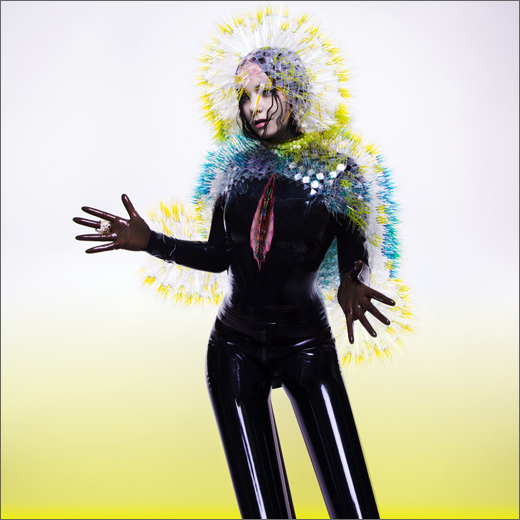
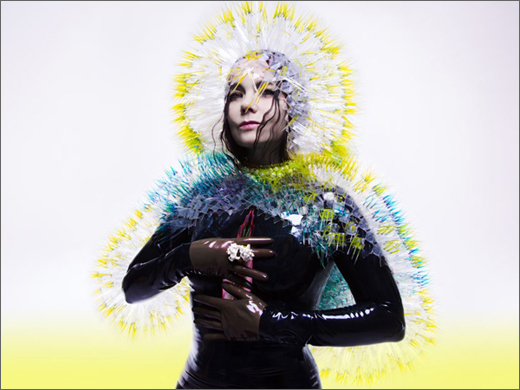

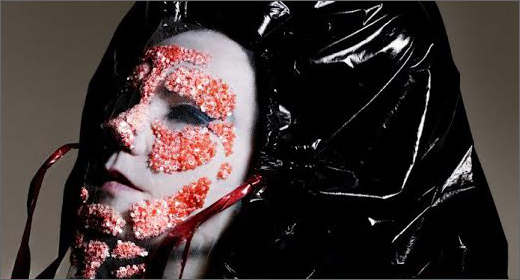
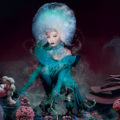

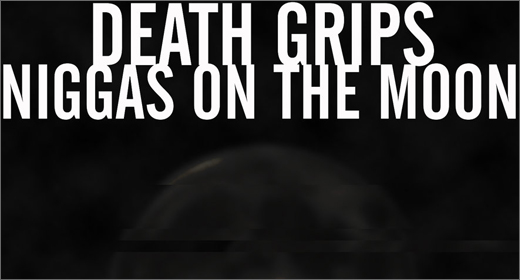




![Luke’s Anger :: Ceiling Walker EP (Love Love) — [concise]](https://igloomag.com/wp/wp-content/uploads/2025/04/lukes-anger-ceiling-walker-vinyl_feat-75x75.jpg)

![Ndorfik & madebyitself :: Solos EP (People Can Listen) — [concise]](https://igloomag.com/wp/wp-content/uploads/2025/04/ndorfik-madebyitself-solos_feat-75x75.jpg)




